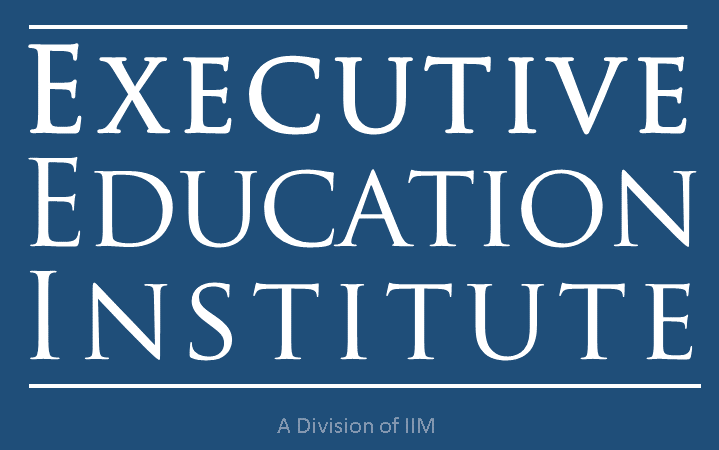Management Hall of Fame
Most Respected Management Gurus
Daniel Goleman
Emotional
Intelligence (EI) (1946-Present)
- "A common core of personal and social abilities has proven to be the key ingredient in people's success: emotional intelligence," (Daniel Goleman)
Key Work
- Daniel Goleman is an internationally renowned journalist, author and psychologist. Goleman is credited with Emotional Intelligence (EI) Theory. Goleman defined emotional intelligence as " a capacity for recognizing our own and others' feelings, for motivating ourselves, and for managing our emotions, both within ourselves and in our relationships". Daniel received his Ph.D. from Harvard, where he has also been a visiting lecturer.
- Goleman authored the international best-seller book Emotional Intelligence (1999, Bantam Books). He received many awards for his writing, including a Career Achievement award for journalism from the American Psychological Association. He was elected a Fellow of the American Association for the Advancement of Science in recognition of his efforts to communicate the behavioral sciences to the public.
Milestones
- Joined editorial staff of New York Times.
- Publication of Emotional Intelligence & Working with Emotional Intelligence.
- Founds Consortium for Research on Emotional Intelligence at Rutgers University.
- Goleman developed a framework to explain emotional intelligence and Emotional Competence Inventory (ECI), in association with the Hay Group, to use in assessing and developing EQ competencies at work.
- Self-awareness: Self-assessment and examination your emotions and their impact on your performance; looking at your strengths and weaknesses; being certain about your capabilities, values, and goals; and learning from your experiences.
- Self-Management: Controlling stress, pressure and temper; being more positive and action-centered; and nurturing trustworthiness and self-restraint.
- Motivation: Drive for achievement; enjoying challenge and stimulation; ability to take the initiative; commitment to goals.
- Empathy: Ability to see other people's points of view; cultural sensitivity behaving openly and honestly; and avoiding the tendency to stereotype others.
- Social skills: Leadership and Influencing skills such as persuasion, communication, listening skills; negotiation; team play and cooperation; dispute resolution; ability to inspire and lead others; capacity to initiate and manage change; and ability to deal with others' emotions - particularly group emotions.
- According to his research, persons who demonstrate these 5 characteristics and score high on the ECI are more likely to be successful in senior management. He gives several anecdotal case studies to illustrate ways in which emotional intelligence can make a real impact in the workplace.
- Leadership Styles
.
On the basis of findings with 3781 executive participants, the research
suggests that leaders gain the best results by using a combination of
six leadership styles, each uses different components of emotional
intelligence:
- Coercive Leaders - demand instant obedience. Coercive leaders are self-motivated, initiate change, are self-motivated, initiate change, and are driven to succeed.
- Authoritative Leaders - energize people toward a goal. Authoritative leaders initiate change and are empathetic.
- Affiliative Leaders - build relationships. Affiliative leaders are empathic and have good communication skills.
- Democratic Leaders - actively encourage team involvement in decision-making. Democratic leaders are good at communication, listening and negotiation.
- Pacesetting Leaders - set high standards of performance. Pacesetting leaders use their initiative and are self-motivated and driven to succeed.
- Coaching Leaders - expand develop people's skills. Coaching leaders have the ability to listen well, communicate effectively, and motivate others.
- The research evidence suggests that the six leadership styles are each appropriate for different types of situations.
Books & References:
- Daniel Coleman, Working with Emotional Intelligence : Why it Can Matter More Than IQ. New York: Bantam, 1999.
- Daniel Coleman, Richard Boyatzis and Annie McKee. Primal Leadership: Realizing the Power of Emotional Intelligence. Boston, MA: Harvard Business School Press, 2002.
- Daniel Coleman, Social Intelligence: The New Science of Human Relationships (2006) Bantam Books. ISBN 978-0553803525
- Daniel Coleman, Destructive Emotions: A Scientific Dialogue with the Dalai Lama (2003) Bantam Books. ISBN 978-0553381054
- Daniel Coleman, Primal Leadership: The Hidden Driver of Great Performance (HBR OnPoint Enhanced Edition)(2001) Co-authors: Boyatzis, Richard; McKee, Annie. Harvard Business School Press. ISBN 978-1578514861
- The Emotionally Intelligent Workplace: How to Select For, Measure, and Improve Emotional Intelligence in Individuals, Groups, and Organizations (2001) Jossey-Bass. ISBN 978-0787956905 Harvard Business Review on What Makes a Leader? (1998) Co-authors: Michael MacCoby, Thomas Davenport, John C. Beck, Dan Clampa, Michael Watkins. Harvard Business School Press. ISBN 978-1578516377
- Daniel Coleman, Healing Emotions: Conversations with the Dalai Lama on Mindfulness, Emotions, and Health (1997) Shambhala. ISBN 978-1590300107
- Daniel Coleman, Emotional Intelligence: 10th Anniversary Edition; Why It Can Matter More Than IQ(1996) Bantam Books. ISBN 978-0553383713
- Daniel Coleman, The Meditative Mind(1988) Tarcher. ISBN 978-0874778335
- Daniel Coleman, VITAL LIES SIMPLE TRUTHS: The Psychology of Self Deception (1985) Bloomsbury Publishing. ISBN 978-0747534136
Executive Education and Management Training
- The institute researchs, develops, and disseminates management-best-practices and learned-lessons from leading CEOs and Management Gurus. For advanced executive education and management training courses, please visit the Executive Education Courses.

